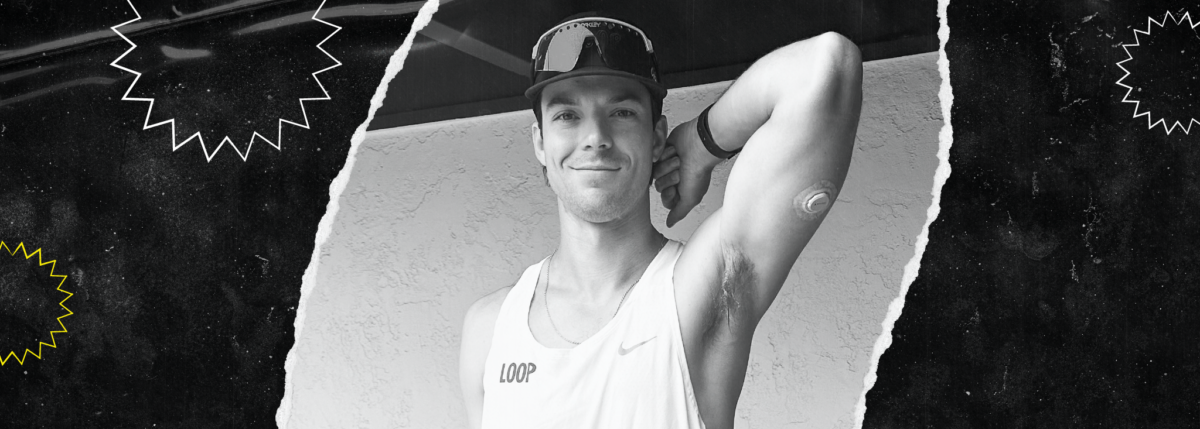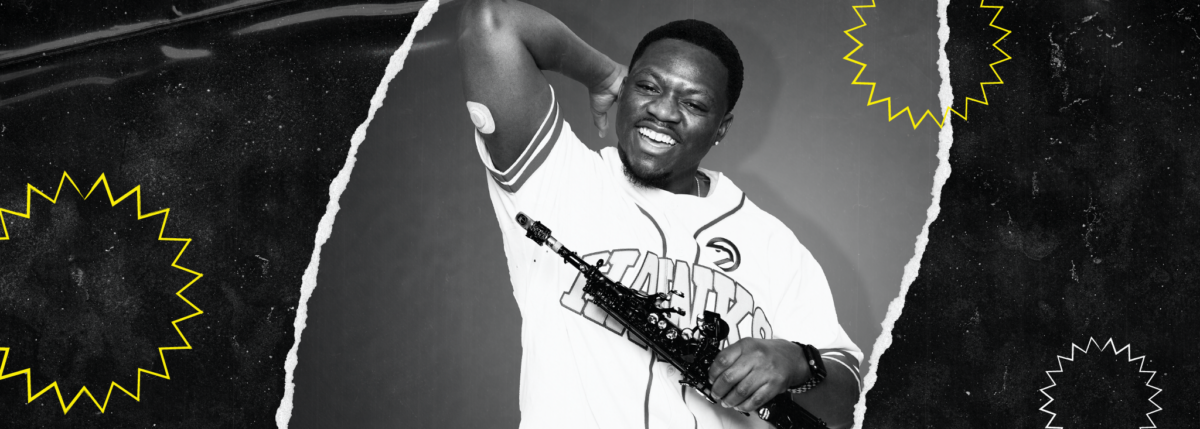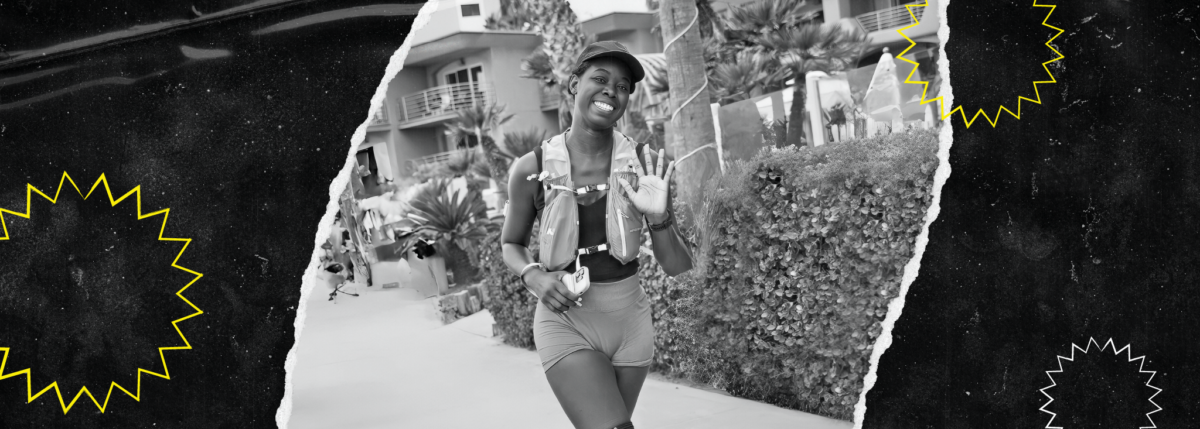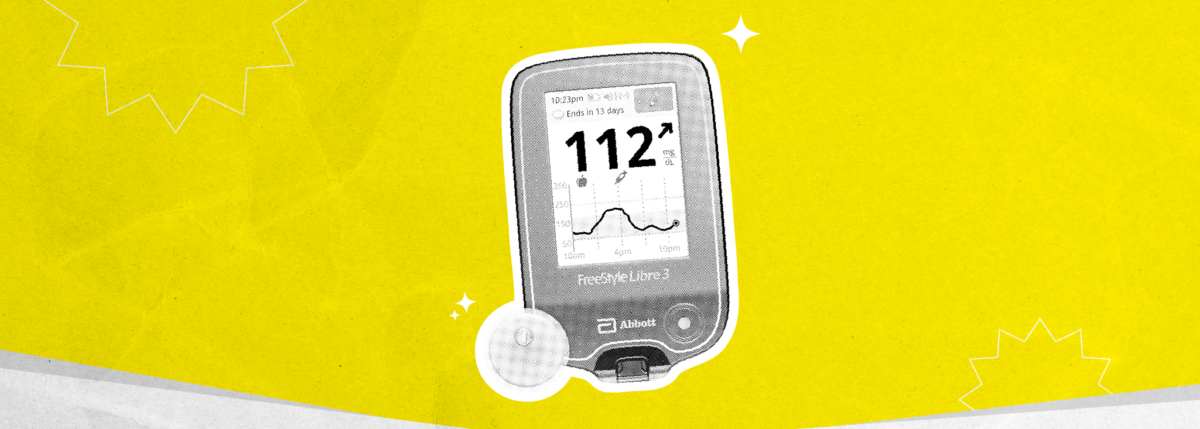Former Chef with Type 2 Diabetes Proves Great Food Can Be Healthy + Tasty
Written by: Erika Szumel
8 minute read
December 16, 2021
Former Chef, Carlos Gonzalez, learned how to make healthy food choices without sacrificing flavor after he was diagnosed with T2D.
This interview has been edited and condensed for clarity.
A type 2 diabetes diagnosis leads many people to believe that they need to give up their favorite foods. This couldn’t be further from the truth. A diagnosis of type 2 diabetes will most likely change your diet, but it does not mean you need to sacrifice flavor.
Carlos Gonzalez, 36, a former chef, learned that great food can be healthy and tasty after his diagnosis of type 2 diabetes in 2019. He says it took some change and getting used to, but his culinary background helped with the transition. Today, he cooks often and works out every day, documenting his fitness journey on Instagram.
At first, Carlos was prescribed insulin, but with changes made to his lifestyle, he no longer needs it. He says it’s the little things that helped him make the transition. Carlos chatted with us to discuss his transition, his culinary background, and tips for those newly diagnosed.
The following transcript has been edited for length and clarity.
BT2: Thank you for chatting with us! When were you diagnosed with type 2 diabetes? What were some of the symptoms you had?
Carlos Gonzalez: I was diagnosed on March 5th, 2019. Before that, I knew I had the symptoms. I was drinking a lot of water. I was drinking about three gallons of water a day, always using the bathroom and just feeling super tired all the time. I didn’t really know all the symptoms, but WebMD gets you going crazy and you think you have everything. By the time you’re done, you’re dying by tomorrow. But over time, it was just one of those things where I was tired, peeing all the time, drinking a lot of water and not really feeling like I had enough energy to do anything. I found out I had type 2 diabetes after I got into a car accident. I was leaving work and I was heading down a two-way road, and a car was swerving around, I tried to miss it and it hit me. I had to be cut out of the car and put in an ambulance. In the ambulance, they had to test my blood sugar. It was 455 mg/dL or something like that and they said I was in diabetic ketoacidosis (DKA). Never knew what that was. They’re like, “How are you feeling?” I said, “I feel normal.” I guess after having high blood sugars for a while, you just feel normal with them. Even though they’re high, you don’t really get any sleep, you’re up at night every 20 minutes to use the bathroom. It’s been a wild ride.
We’d love to hear about the changes you made. What was the transition like for you?
It was easy at first, I learned a lot of information while I was in the hospital bed because they wouldn’t let me leave. Not having my glasses, because I lost them in the accident, I could only look at my phone. So the whole time, I’m just scrolling through, looking up all the symptoms of what I can do. Plus, the Tampa General doctors, who are phenomenal, gave me a ton of information.
I was always asking questions. What do you give me insulin for? What is this for? What do I look out for? So it was just one of those things, where those couple days I was in the hospital gave me the willpower and the knowledge to hit the ground running as soon as I was home.
It was overwhelming at first because I had to make a lot of changes to my diet and eat different foods. At first, I was thinking in my head, if I would’ve just gone to a doctor and sat down with a doctor and he’s like, “Oh, you have type 2 diabetes.” I’m like, “Oh, you don’t know what you’re talking about.” Then I think it would’ve been a whole other mindset.
Being in the hospital and speaking to a doctor, I already felt the anguish of being in a hospital. You don’t want to be there. So it was just one of those transitions that was easy for me because I was there already. I already knew the end results in the beginning.
On your Instagram, you’re very active and are open about your gym life. Was that something you had already been doing or did you start sharing your journey once you were diagnosed?
I was doing it over the years, but I wasn’t getting super into it. Every once in a while, I would go to the gym and then I take a couple of breaks and do other things. After my diagnosis, I knew it was time for me to buckle down. Life reminded me of my focus and what I need to be doing, like going to the gym every day, eating right every day and expressing myself every day.
I think type 2 has kept me humble more now than it has before because you can’t slack. If you slack, it’s more hurtful to you than anyone else, because if you don’t have diabetes, you can say, “Ah, I’m not going to the gym. There’s nothing. There are no repercussions.” With type 2 diabetes, there are obvious repercussions.
From the beginning, were you prescribed insulin? Did your doctor tell you to change your diet?
I started off with insulin because when I first started, my A1C was greater than 14. So I had to be on insulin. I had to be on pills. I had to be on all kinds of things and diet at the same time, just getting into it. A lot of injections, metformin and also some triglycerides medications all at the same time. I was on that for three months before I took myself off of insulin. I went back to the doctor, and he said, “Okay, you’re fine.”
What were some of the changes that you noticed? Did you notice immediately that you were feeling different, that your numbers were better or more in the range you wanted to be in?
It took a while for me to realize the difference now from that end. I wasn’t as tired. I actually got some sleep. I didn’t have to wake up every two hours to go to the bathroom. I remember the first couple of nights when I was correcting to get down to normal blood sugars, and I fell asleep. I woke up five hours later instead of a couple of hours later—because my blood sugar was normal, not high.
We hear it from our community all the time—that you get so used to feeling that way, that you don’t even realize that something’s wrong.
It feels normal. You get used to it yourself, but it’s not normal. You get used to peeing every two minutes or your jaws hurting. My gums were hurting because they were so inflamed because of my blood sugars. I thought it was a normal feeling because my wisdom teeth were still coming in at the time. But it wasn’t normal. It was just my blood sugars going up and down and the sugar secreting in my mouth. It was painful.
You transitioned from being on insulin to then being off insulin. What were the changes that you made? Did your diet and exercise really help you with that?
It was diet and exercise. It was knowing what I was eating and paying attention to what I was putting in my body and actually being active. It’s just one of those things where you have to stay active. As long as you’re active and eating and have that mindset of what you’re eating, what you’re putting into your body, it corrects itself. It really does. It’s one of those things where you don’t realize it’s the mindset. You don’t realize what you’re eating until you sit there and look at what you’re eating and think back to what you were doing before.
It’s knowledge, always knowledge. Exercising every day, four or five days a week. At first, I was making several different types of dishes just for the week. It was overwhelming. I said to myself, “All right, something’s got to give. I can’t make myself gourmet dinners every night.”
Even though I was a chef for 15 years, I said, “All right, I got to keep this basic, because I got five million other things I have to get done.” So it’s just basically chicken and broccoli most of the time. Then maybe a sweet potato or maybe some rice or something like that mixed into it. But yeah, it’s really about diet, and diet and exercise, getting out and being active and not just having a bag of potato chips with you the whole time.
Do you have any tips for other type 2 diabetes (T2Ds)?
It’s the little things. Park far away from the entrance as often as possible. Also, the stress of finding a parking spot close helps with your blood sugar. If you park in the back where nobody else is, that’s less stressful. Plus, you get a little bit more exercise. It’s just a little at a time.
The little things you do add up, even just an hour a day. Walk around the neighborhood or just make sure if you’re going to eat something, make sure it doesn’t have a lot of carbs in it. If you’re going to eat the carbs, you’ve got to burn it off. Stay focused on what you’re putting into your body and staying active.
How did being a chef for 15 years change your way of looking at food?
At first, I knew all the ingredients to go in the food, but I never paid attention to what was in the food, carb-wise, sugar-wise and sodium-wise. I was just throwing it in. If it tasted good, it went into the food.
So it’s just one of those things where I knew the portion sizes already. It helped me with the portion sizes when you read the back of a label, how much is the portion size. A cup or a teaspoon, tablespoon. It coincided with me already being a chef, which I already knew the measurements, I can already eyeball it. If I don’t have a measuring cup handy, I already knew what a cup looked like or two cups or a spoonful of something that I’m allowed to have on the back of the ingredients, where it says serving size. Serving size was really important.
Then the foods I cook, I can cook them in different ways. I can use different flavors that will taste the same but are a lot healthier. Being a chef helped me understand how to make food taste good, even though it’s supposed to be healthy for you at the same time. It’s not going to kill you.
You have to get used to some things because some things might not taste right at first because your body’s never eaten them. But after a while, when you start eating these things, substituting maybe regular table salt for Himalayan salt or sea salt, or just non-salt-based seasonings, eventually your taste buds will like it and you’ll get used to it. I love the food now. It’s just tremendous how much you could still make the same kind of flavors and the taste and still want to eat it.
Do you have any words of inspiration for anybody who is feeling discouraged or newly diagnosed with type 2?
I do. Take your time. One day at a time, one shot at a time, one pill at a time. Don’t overwhelm yourself because then you’re just going to fall into a pit of, “Woe is me and I’m never going to get better.” Take it one day at a time, one step at a time. Mainly, just eat everything in moderation. That’s the best I could say is to eat everything in moderation. Don’t block yourself from having anything, but if you’re going to eat it, don’t eat the whole thing.
Is there anything else you’d like to add?
Actually, the other day, I talked to a psychologist about type 2 diabetes and type 1 diabetes. If you guys need the help, help is out there for you, and for those that have underlying conditions already on top of already having diabetes. There are people out there to help you.
There are people that you can actually talk to about diabetes and your mental health situation. I’m just working on that myself, trying to find that help myself so I can have a better mindset.
*Read another story about a chef who still loves to cook after her type 2 diabetes diagnosis.
You are not alone. Join the BT2 community!
A place for everyone impacted by type 2 diabetes to share their stories, get connected to one another and find resources on topics from daily management to mental health. Now with the support of our friends at the American Diabetes Association, get instantly connected to other people who just get it—ask questions, share successes, vent about it in a safe and respectful platform designed specifically for people impacted by T2D. Here you’ll find a collection of practical ideas, stories and resources in both English and Spanish, for not only living with type 2, but thriving with it.
Were you recently diagnosed? Learn how to find the mental health support that you need here and how to find a mental health provider here.
Want to share your story with us? Share your story or submit clinical content here.
Educational content related to type 2 diabetes is made possible with support from Lilly Diabetes. Beyond Type 2 maintains full editorial control of all content published on our platforms.

Author
Erika Szumel
Erika has been living with type 1 diabetes since 2000 and began her career as an associate producer, working at NBC's Oxygen. When she's not writing about her favorite places (or planning a trip), she's jammin' out to classic rock. Living at the Jersey shore, Erika is a lover of the little things, the ocean and pork roll.
Related Resources

Jordan Sooter’s journey to running marathons began in college as a way to stay fit....
Read more

Antoine Gibson is no stranger to overcoming challenges. As a saxophonist and marathon runner living...
Read more

Danica Collins not only prepared for one of the most challenging physical events of her...
Read more

